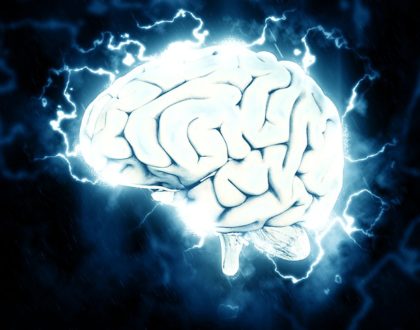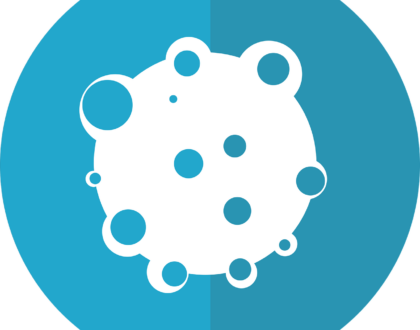Infertility, West and East, and whats known


For the purposes of this blog, I decided to discuss the various methods used to treat the problem, where western medicine is falling short, the incredible complexity and miracle of conception and birth, and of course fertility treatments thru acupuncture and herbal medicine, and their more simplistic yet powerful and logical approach.
First fact that bears mentioning is that not all infertility in couples is due to the woman; studies show that 50% of the time its the mans sperm that is somehow at fault: morphology, movement, or sperm count may be off for any number of reasons.
Fertility can also be thought of as having good overall health and recently several papers [ref 1, ref 2] have shown that infertility in both men or women seems to be linked to mortality. I am not including this factoid to alarm anybody but to emphasize the purpose of this blog which is even with hugely complex pregnancy and its regulation, the more simple something is, the more powerful it may turn out to be. In my acupuncture clinic one of the first steps for me is to do a physical and take pulses, look at the tongue, check the temperature of the abdomen before making a treatment plan. Treatment plans are generally based on finding out what organ(s) and meridian(s) and energetic system(s) is out of balance, and then using acupuncture pins and sometimes herbal medicine to bring the body back towards balance and homeostasis. The result is better sleep, calmer disposition, and yes increased fertility. Could this be the reason why infertility in both men and women leads to higher mortality as in body system inevitably go out of balance, and when extreme with no help to bring things back towards balance, result is increased dis-ease and disharmony of bodies systems and increased mortality? I don’t know but it seems logical enough that it could account for the stats that is seen.
Lets look at other contributors of infertility, the western approach, and finally another look at the beauty of the far east approach to fertility.
Infertility is defined as the inability to achieve pregnancy after one year of unprotected intercourse. An estimated 15% of couples meet this criterion and are considered infertile, with approximately 35% due to female factors alone, 30% due to male factors alone, 20% due to a combination of female and male factors, and 15% unexplained [3, 4].
Realistically, one of the most important and basic concepts to consider is diet and food. What we must get enough of and what we must stay clear of so lets cover that.
Folate: for pregnancy, folate is necessary. Unfortunately most supplements that are labeled pre-natal have folic acid in them instead of folate. The difference is subtle but not to the body. Too much folic acid has recently been linked with autism so check the labels and make sure you are taking folate and not just folic acid. Folic acid is also added to some foods, therefore its easy to get too much if one is also taking pre-natal vitamins.
Iodine: If a woman is trying to get pregnant and is deficient in iodine, they halve their chance of conceiving vs if they had healthy iodine levels [5]. Low iodine levels can lead to other problems that include endemic goiter, hypothyroidism, cretinism, decreased fertility rate, increased infant mortality, and mental retardation. And it really pays to make sure you have healthy levels of iodine as if there is release of radioactive iodine into the atmosphere (due to a dirty nuclear bomb), then chances of getting thyroid cancer will be much less if the iodine receptors in the thyroid are already filled with iodine atoms vs a radioactive iodine atom taking up the empty receptor, so saturate those iodine receptor sites on your thyroid by making sure you get the right amount per day.
Thyroid function: Thyroid hormone levels at the low end of normal are twice as common in women with unexplained infertility as those with normal fertility, hinting at a possible role for thyroid hormone replacement[6].
Adrenal disease: including disorders such as congenital adrenal hyperplasia (CAH), Addison disease, Cushing syndrome, pheochromocytoma, and primary hyperaldosteronism—can reduce female fertility [7].
Hormones: Hormonal interactions too complicated and better understanding is at works.
Eating a Mediterranean diet may significantly increase some women’s chances of becoming pregnant through IVF and giving birth to a live baby, according to a small study[8].
Work: Physical work, work with psychological stress, and shift work such as the overnight shift, all affect fertility in a negative way [9].
Poly Cystic Ovarian Disease (PCOS): This condition needs to be addressed by the health professional, conventional or traditional, in order to up chances of pregnancy. Obesity also reduces chances of pregnancy [10].
There is also the additional stress and failure rates brought on by apps that should be helping with fertility but in fact are inaccurate [11] and miscalculate the fertile window.
And now for some of what is known about causes of male infertility. Causes of infertility in men can be explained by deficiencies in sperm formation, concentration, or transportation. This general division allows an appropriate workup of potential underlying causes of infertility and helps define a course of action for treatment.
First and foremost, stay away from too much acetaminophen! [11] Or prolonged taking of acetaminophen. If you are having too much pain for whatever reason and its structural, there is a new and safe alternative: its the oil of cannabidiols (CBD) creams. They are available without prescription and evidently can help quite a bit in lowering pain. CBD oils use the endogenous cannabinoid system to exert its affects. It seems to be safe. Does it affect sperm quality or quantity? Too early to say yet but all indications point to it being safe.
The following list highlights some lifestyle choices that negatively impact male fertility–it is not all-inclusive:
· Smoking–significantly decreases both sperm count and sperm cell motility.
· Prolonged use of marijuana and other recreational drugs.
· Chronic alcohol abuse.
· Anabolic steroid use–causes testicular shrinkage and infertility.
· Overly intense exercise–produces high levels of adrenal steroid hormones which cause a
testosterone deficiency resulting in infertility.
· Inadequate vitamin C and Zinc in the diet.
· Tight underwear–increases scrotal temperature which results in decreased sperm production.
· Exposure to environmental hazards and toxins such as pesticides, lead, paint, radiation, radioactive
substances, mercury, benzene, boron, and heavy metals
· Malnutrition and anemia.
· Excessive stress
Saturated fats, like those found in rich cheeses and meats, may do more than weigh men down after a meal – a new study also links them to dwindling sperm counts.
A study showed that vitamin D supplementation in men with normal testosterone levels is followed by favorable changes in sex steroid hormone status and suggests benefit.
It has also recently been shown that it helps for couples who need to loose weight for fertility or other reasons, to do it as part of a coordinated effort as the likelihood of success increases significantly.
Modifying these behaviors can improve a man’s fertility and should be considered when a couple is trying to achieve pregnancy.
As the sperm count in continents such as North America, Europe, Australia, and New Zealand dropped by 50%, we know lots of that is due to environmental degradation and increased daily stress. But exact causes are unknown and urgently needed beyond reasons for fertility.
At the fertility clinics, often to increase the chances of success, there are add on treatments.
Little Evidence to Show Benefits of Add-on Fertility Treatments, Not surprisingly, there has been a constant search for “add-on” treatments to improve outcomes.[ Interventions are often introduced without proper evaluation with the potential to lower rather than improve outcome.
It’s important that patients receive appropriate counseling about the known risks, potential benefits, and the potential (unknown) effect on their offspring before they agree to these add-on treatments.
Immune treatment, endometrial receptivity testing, hematologic therapies, and laboratory interventions have all been shown to have benefits by some studies and no benefit by others.[3] The meta-analysis of evidence usually is based on poor-quality studies, low numbers of cases, and can be at best called controversial, yet all of these interventions are used routinely.
Far east medicine approach to the miracle of fertility, pregnancy and birth:
Recommended Posts

Alzheimer’s disease prevention. Clues from taxi drivers??
January 2, 2025

Lowering Risk of Cancer
December 21, 2024

